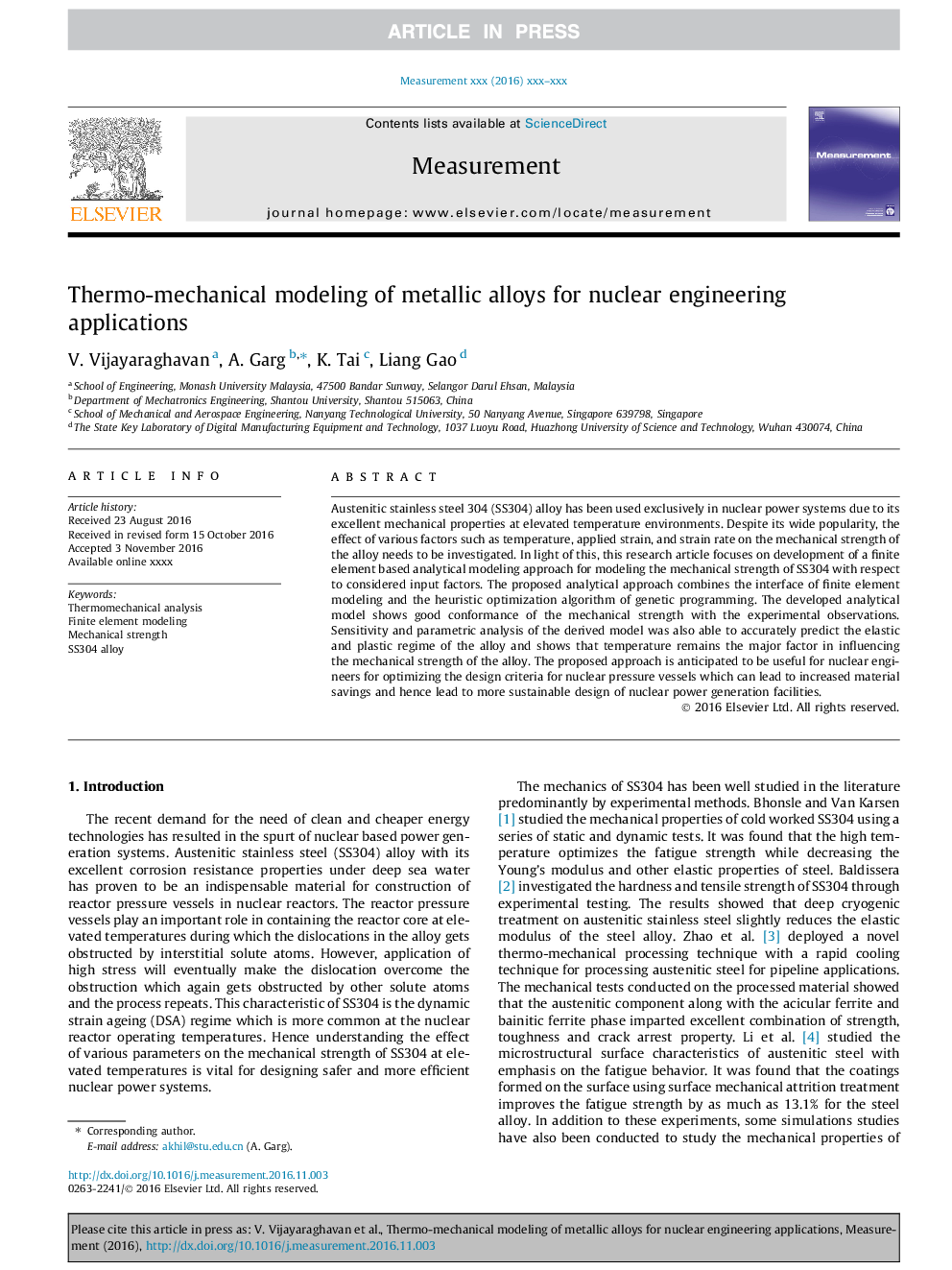| Article ID | Journal | Published Year | Pages | File Type |
|---|---|---|---|---|
| 5006920 | Measurement | 2017 | 9 Pages |
Abstract
Austenitic stainless steel 304 (SS304) alloy has been used exclusively in nuclear power systems due to its excellent mechanical properties at elevated temperature environments. Despite its wide popularity, the effect of various factors such as temperature, applied strain, and strain rate on the mechanical strength of the alloy needs to be investigated. In light of this, this research article focuses on development of a finite element based analytical modeling approach for modeling the mechanical strength of SS304 with respect to considered input factors. The proposed analytical approach combines the interface of finite element modeling and the heuristic optimization algorithm of genetic programming. The developed analytical model shows good conformance of the mechanical strength with the experimental observations. Sensitivity and parametric analysis of the derived model was also able to accurately predict the elastic and plastic regime of the alloy and shows that temperature remains the major factor in influencing the mechanical strength of the alloy. The proposed approach is anticipated to be useful for nuclear engineers for optimizing the design criteria for nuclear pressure vessels which can lead to increased material savings and hence lead to more sustainable design of nuclear power generation facilities.
Related Topics
Physical Sciences and Engineering
Engineering
Control and Systems Engineering
Authors
V. Vijayaraghavan, A. Garg, K. Tai, Liang Gao,
